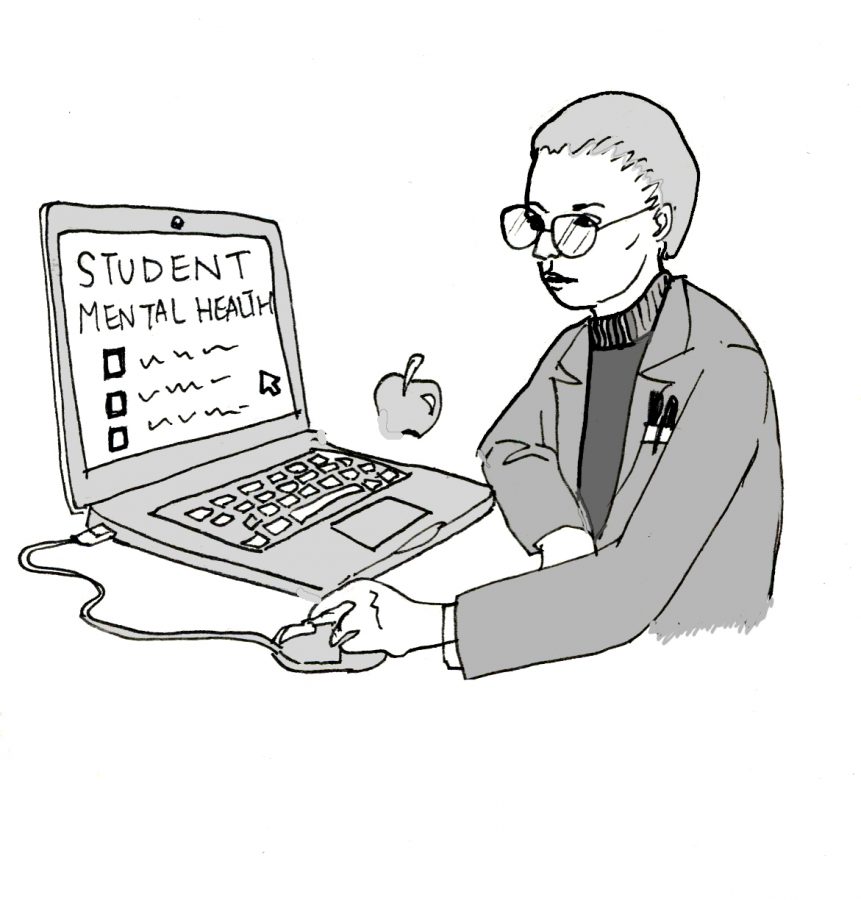“If you suspect this student has engaged in scholastic dishonesty, you are urged to report the matter to Student Conduct and Academic Integrity.”
This was the only message from the University that professor Lee Walker received when a student dropped his class this semester for mental health reasons.
“Why is that our only question?” Walker asked. The answer, it appears, is a continued denial of the importance of student mental health. As UT’s administration continues to grapple with the continued reckoning over campus mental health, it should look into empowering its professors to take a more active role in supporting their students.
Due to her struggle with OCD, psychology sophomore Haley Virella is diligent in working with professors to get the accommodations she needs to be comfortable in class. These accommodations aren’t always enough, though. After a mental health crisis, Virella dropped her Italian class last semester.
“My professor emailed me in concern a few weeks after I stopped showing up,” Virella said. “Her support helped me feel like I was doing the right thing … she helped me feel justified in my actions, and not guilty (about them).”
When Virella dropped her UGS course this semester? Silence.
Professors are often the most vital promoter of student mental health, but when the University doesn’t provide clear means for professors to help, students like Virella can fall through the cracks.
Kelly Soucy, director of Student Emergency Services, said that over 60 percent of callers to the University’s Behavioral Concerns Advice Line are faculty and staff — often calling about their students. The BCAL, a 24-hour number that anyone can call regarding concerns about any Longhorn, helped direct service to over 2,600 Longhorns last year alone.
“Someone called in because their friend was suicidal,” Soucy recalls. “UTPD did a welfare check and made sure that person was safe. That person didn’t harm themselves because of that call.”
It would seem like a service that saves lives would be heavily advertised to both students and staff. The BCAL, however, is primarily advertised through word of mouth — something Soucy
noted was being worked on.
While Walker didn’t know about the BCAL, he nonetheless followed up with the student that dropped his class to ensure that he was healthy. Not all professors have the time or energy to do the same. Why not, then, add a single sentence to the automated email that Walker received that informs professors on how to call the BCAL when a student drops? A simple reminder of the under-advertised resources that we have available could help professors ensure a student gets the help that they need.
“It ought to be simple,” Walker implored. “It’s like a fire alarm. Break the glass and hit the button.”
“The email comes from the academic side, but we would love to collaborate and be a part of that message,” Soucy told me. With Student Emergency Services on board, it’s on the registrar to modify the “drop notice” email that professors across campus receive. The registrar’s office, however, was unavailable for comment.
The stories of Haley Virella, Lee Walker and Kelly Soucy are telling. Our University has a potential solution at its hands that could bring a Longhorn in crisis the care they need. All it needs is to ensure that our professors are not only aware of it, but able to use it to help their students.
Maybe the next time Walker, or another professor, receives a “drop notice” email, it will also say the following:
“If you have any concerns about the mental health of this student, call the BCAL at (512) 232-5050.”
Buckner is a Plan II and government freshman from Austin.





















